On July 31, 2004, the Museum of the Uprising was inaugurated in Warsaw, decades after its establishment and years of work for its construction.
Through images, photographs, video-stories and artifacts, the place tells the evocative and heroic reaction of the Polish people against the Nazi invaders and occupiers, a few weeks after the arrival of Stalin's Red Army in 1944. Aware that between the grip of two tyrants the future would be one of deprivation, death and misery, the proud Polish people rose up against the leviathan of totalitarianism.
The price of that gesture was very high and the city was razed to the ground, amidst flames and rubble.
Today, in the rooms of the Museum, the viewer is welcomed in an evocative and dark environment, with a permanent sound exhibition that has been renamed the "Heart of the Museum" and which marks every step of visitors with the sound of an accelerated heartbeat, mixed with the sound echoes of the horrors of war.
It was Law and Justice Party with Lech Kaczyński that raised public awareness of the importance of a place of collective remembrance and meditation that would strengthen the national historical memory. In retrospect, one of the cornerstones of an electoral program that proved successful to bring the party back to government in 2005.
Law and Justice has in fact always given enormous prominence to history and memory, it has done so by standing as a bulwark of a cultural counter-revolution of modern messianist progressivism.
Over the years, this has provoked a deep tug-of-war between the party of the Kaczyński twins and the institutions of the European Union, which has declassified Poland and Hungary as "second class" countries, insubordinate to the logic of progress, reactionary and turned in on themselves.
But historical memory has always made Poland one of the key countries of the current Union, so much so that Italian geopolitical analysts have spoken of "Imperial Poland" and gem of the Atlantic alliance in the heart of the Old Continent, with a markedly anti-Russian function.
The feeling of aversion towards the nearby "Russian Bear" was undoubtedly born with the violent oppression that all the countries of the former Soviet bloc experienced in the decades of the USSR up to the demonstrations in Gdansk by the heroic Lech Wałęsa but saw a clear growth after 2010.
The year in which Poland was shaken by the accident of April 10 in which the presidential plane bound for Russia crashed on the day of commemorations for the Katyn massacre.
On that fateful date, the Tupolev Tu-154 carrying President Lech Kaczyński, former President Ryszard Kaczorowski, the upper echelons of the army and finance and numerous direct descendants of the victims of the Soviet massacre, crashed in Smolensk. However, gray areas continue to hover over the tragedy that have never been fully clarified.
With the government of Mateusz Morawiecki, European culture and identity have returned to the center of public attention and with them the historical memory of the country.
The cornerstones of the PiS Europe are in fact found in the imperious speech made by the former Prime Minister at the University of Heidelberg.
In Germany, Morawiecki dwells on the greatness of the European tradition and on the unity of differences, the same that General De Gaulle wanted to affirm with the first forms of European confederalism.
The former Polish Prime Minister does so by citing Dante, Goethe, Chateaubriand, respectively Italian, German and French but in the same way emblems of European tradition and pillars of history.
Along the axis of conservatism, Poland therefore fights the "mask" of supranational federalization, with a Eurorealist sentiment that allows it to approach the problems and critical issues of the current EU itself in a concrete way.
The speech clearly reiterates the priorities of the current Poland and Europe with conservative traction, including the crisis of the middle class, the eclipse of values, irregular immigration, the loss of a geopolitical position capable of acting as a counterbalance between the two opposing blocs of the geopolitical chessboard.
Between messianism and pragmatism, the mention of the former Polish prime minister at the "end of history" by Francis Fukuyama is critical. The end of history was a concept theorized at the end of the twentieth century to explain how the "short century" had sublimated and concluded the process of social, political and economic-financial evolution of humanity but this was not the case.
In Polish historical memory, the awareness of a twentieth-century past of domination and oppression, which the former Prime Minister defines as the cause of the loss of centuries of history in the face of fifty years of totalitarianism, is the key to interpreting the present.
It is not surprising that the choice for the 2025 presidential election, with Duda unable to run for a third term, fell on the young historian Karol Nawrocki.
A choice that rewards an independent candidate with a long career in Polish academia, focused on shedding light on communist war crimes and the background of Warsaw's resistance against enemies, German and Soviet above all.
Nawrocki, in fact, has been directing the Institute for National Remembrance since 2021, a state body that houses archival and sources on crimes of the Second World War and the communist era.
The choice of Kaczyński demonstrates the ability to link political foresight to the awareness that culture can be a fundamental political weapon.
The choice of an independent and intellectual candidate brings the country's historical memory back to the center of the public debate and expands a potential coalition in support of Nawrocki for the second round.
A memory, which thanks to Law and Justice, continues to be a shared heritage and a source of pride for Polish patriots.
Read also
Alarico Lazzaro – Karpacz Economic Forum 2024 Speech
Good morning everyone and thanks for invitation to the Karpacz Economic Forum, dedicated this year to artificial intelligence and the youth leadership of the future.
Alarico Lazzaro
Italy and Libya: a century-long relationship in the great game of the Mediterranean
On November 26, 1911 in Barga, the poet Giovanni Pascoli delivered a speech destined to remain in the annals of Italian history.
Alarico Lazzaro
Nawrocki's existential victory revives the Polish right-wing
These have been difficult years for the Polish right-wing. After returning to the center of the geopolitical chessboard thanks to the dynamism of the Morawiecki government in times of war on the borders of Eastern Europe, Donald Tusk's progressive coalition had prevailed in the October 2023 elections, beginning a progressive process of demolition of the institutional structures cemented by the Law and Justice party over the years.



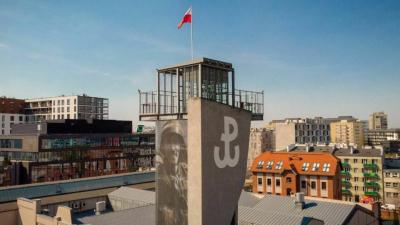

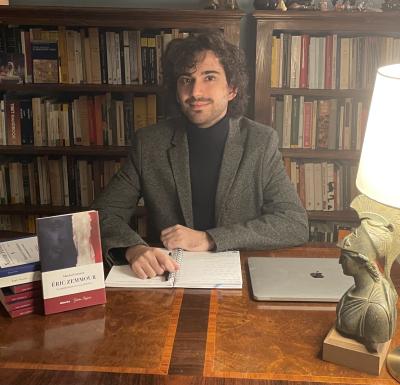
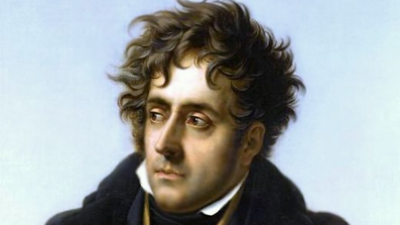

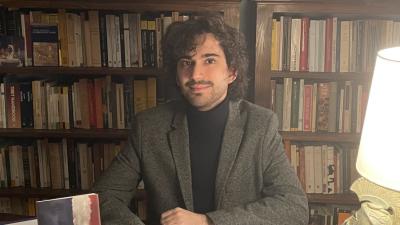

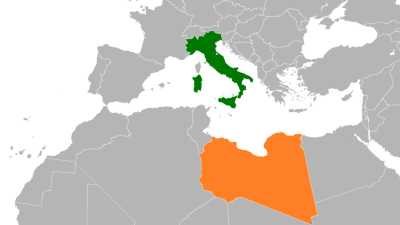



Comments (0)